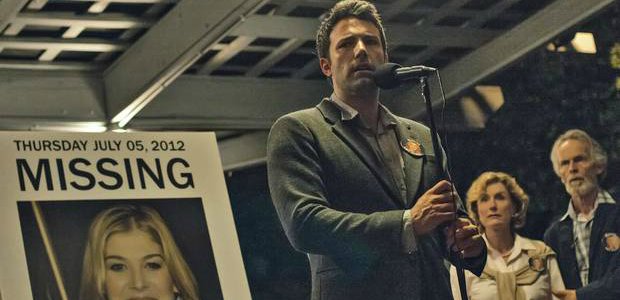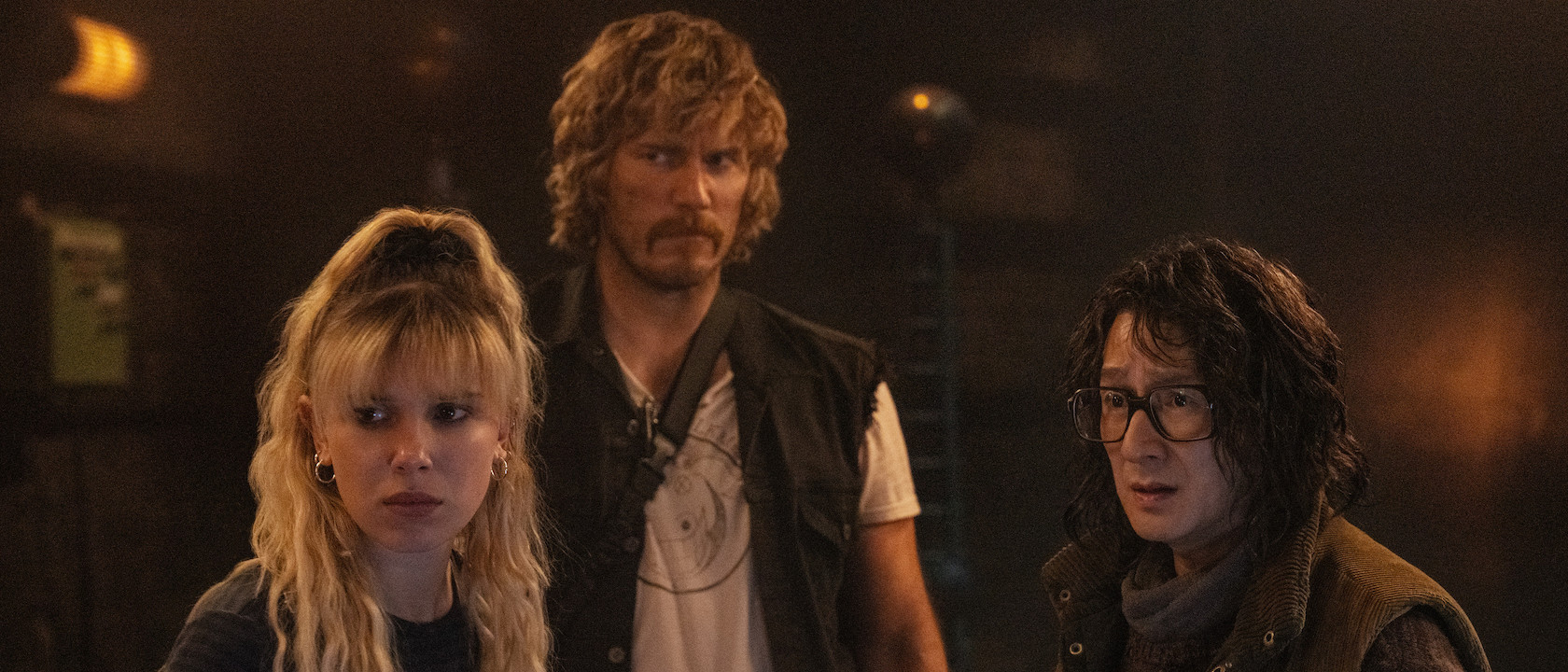Gone Girl is a symphony. It’s presided over by a meticulous conductor in David Fincher, an eccentric inventor of moody, suspenseful masterpieces. Gone Girl features Fincher working near the top of his game, crafting exquisite, chilly, below-the-line production work as he solicits career-best performances from his handsomely put-upon leads, Ben Affleck and Rosamund Pike. In a nutshell, it’s one of Fincher’s finest, as well as one of the year’s best films.
The interesting experiment related to Gone Girl, the film, is how differently it will play to two distinct audiences: those who have read Gillian Flynn’s page-turning bestseller; and those who don’t yet know the answers behind “Amazing” Amy Dunne’s disappearance. The joys of Flynn’s realistically dour whodunit could be found in the carefully dispensed reveals – and I’ll do what I can in this review to protect such mysteries. But while reading Flynn’s novel, I swore that the structure of her storytelling made Gone Girl unfilmable. Fincher, as he’s prone to do, proved me dead wrong.
The “girl” in Gone Girl is Amy Dunne (Rosamund Pike), East Coast socialite and daughter to two successful authors who falls head-over-heels in love with corn-fed Midwestern journalist Nick Dunne (Ben Affleck, playing up every natural tool in his acting work bench). Their story unfolds on two tracks: the days/years/months leading up to their fifth wedding anniversary; and the methodical investigation that follows that fateful day. For on that day, Amy goes missing… and Nick gradually goes from sympathetic husband to suspected killer in the eyes of his family, their nosy Missouri neighbors, and the hovering, headline-starved media.
Gone Girl marks David Fincher’s tenth feature film, and it’s surprising that nearly half of the director’s output – from Se7en to the flawless Zodiac -- bathes in the morose tropes of the true-crime genre. Fincher loves unraveling a good mystery, and Flynn provides a substantial puzzle for at least half of Gone Girl. (The machinations of the story’s second half will be left for you to discover.) These 10 films also have established a familiar visual and audio landscape on which Fincher likes to play. He shoots in shadow on chilly digital, favors a tech-dominant Trent Reznor score, and coaxes outstanding performances out of his actors – through a legendarily grueling process of running ensembles through take after take in search of perfection. Because of Fincher’s proven methods, however, one can say something like “Tyler Perry is brilliant in Gone Girl” and mean it. That’s the power of Fincher.
Where the director has improved – as if that was at all possible – is in his edits and camera placements. Gone Girl relies on subtle character shifts that create and maintain tension, and Fincher’s control over every shot in Gone Girl is breathtaking. His brilliant dissemination of information suggests that Gone Girl’s story plays better in a film. Then again, it’s probably just because Fincher gets the right line readings, the right facial reactions, the right composition in virtually every sequence of Gone Girl -- which is the reason I used the analogy of a conductor guiding the musicians in a symphony at the start of the review. Even those who know Gillian Flynn’s secrets will find volumes of little gifts in Fincher’s telling of this speedy read.
It’s complicated singing the praises of Gone Girl without spoiling the experience. I can to tell you that Ben Affleck’s spectacular as a blindsided cad who’s forced to walk a razor’s edge between public perception and the inquisitions of two probing detectives. There’s a secondary commentary laced through Gone Girl about he media’s “experts” compelled to go where a story goes, but it’s overshadowed by the emergence of a more terrifying threat that… well, I can’t say.
Let’s go here. Gone Girl is scathing without having to be controversial. It’s gripping without having to twist its narrative into a pretzel. And it’s a fantastic conversation starter for those who want to chew over the complications of marriage, fidelity and, possibly, murder. Hell hath no fury like David Fincher working at the top of his game. So, basically, every time he sets out to make a new film.

Sean O’Connell is a journalist and CinemaBlend’s Managing Editor. Having been with the site since 2011, Sean interviewed myriad directors, actors and producers, and created ReelBlend, which he proudly cohosts with Jake Hamilton and Kevin McCarthy. And he's the author of RELEASE THE SNYDER CUT, the Spider-Man history book WITH GREAT POWER, and an upcoming book about Bruce Willis.










